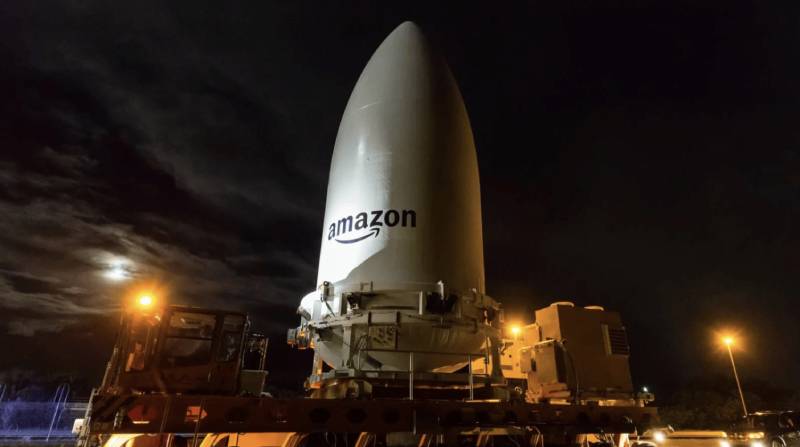Amazon has announced the launch date for the highly anticipated inaugural flight of its Kuiper internet satellites.
The satellites are scheduled to lift off aboard United Launch Alliance’s Atlas V rocket from Cape Canaveral, Florida, on April 9 at 12 p.m. ET, according to a blog post from Amazon. The event will be streamed live on ULA’s website.
This mission marks a crucial milestone in the rollout of Amazon’s Project Kuiper, which was initiated in 2019 with the goal of delivering broadband internet through a network of over 3,000 satellites. The company has allocated $10 billion for this venture, although analysts suggest that the total cost to launch Kuiper could reach as high as $20 billion.
In October 2023, Amazon successfully conducted its first service test by launching two prototype satellites. Although the company had initially planned to deploy its first operational satellites last year, the launch was postponed as ULA focused on two missions for the U.S. Space Force.
“This will be the first time we’ve flown our final satellite design and the first time we’ve deployed so many satellites at once,” said Rajeev Badyal, vice president of Kuiper, in a statement. “We’ve done extensive testing on the ground to prepare for this first mission, but there are some things you can only learn in flight.”
Other low earth orbit satellite internet providers that Kuiper will go out against include SoftBank-backed OneWeb, China’s SpaceSail, and Elon Musk’s Starlink, which has a constellation of more than 7,000 satellites, far more than Amazon.
Similar to its competitors, Amazon is promoting Kuiper to individuals who do not have sufficient access to broadband internet, as well as to governments and businesses. Users can connect to the service by acquiring terminals that enable them to send and receive signals from Kuiper satellites.
Amazon is under pressure to meet a deadline imposed by the Federal Communications Commission, which mandates that the company must have at least half of its satellite constellation—1,618 satellites—operational by July 2026. To achieve this, Amazon has secured over 80 launches from various rocket providers, including ULA, SpaceX, founded by Elon Musk, and Blue Origin, the rocket company established by Amazon’s founder, Jeff Bezos.
- Jerry Rice Award History: Every Winner of the FCS Freshman Award - December 13, 2025
- When Do New Episodes of Taylor Swift’s The End of an Era Drop? | Schedule, Dates & Updates - December 13, 2025
- When Does ‘Matlock’ Return? 2026 Premiere Date Guide - December 12, 2025





